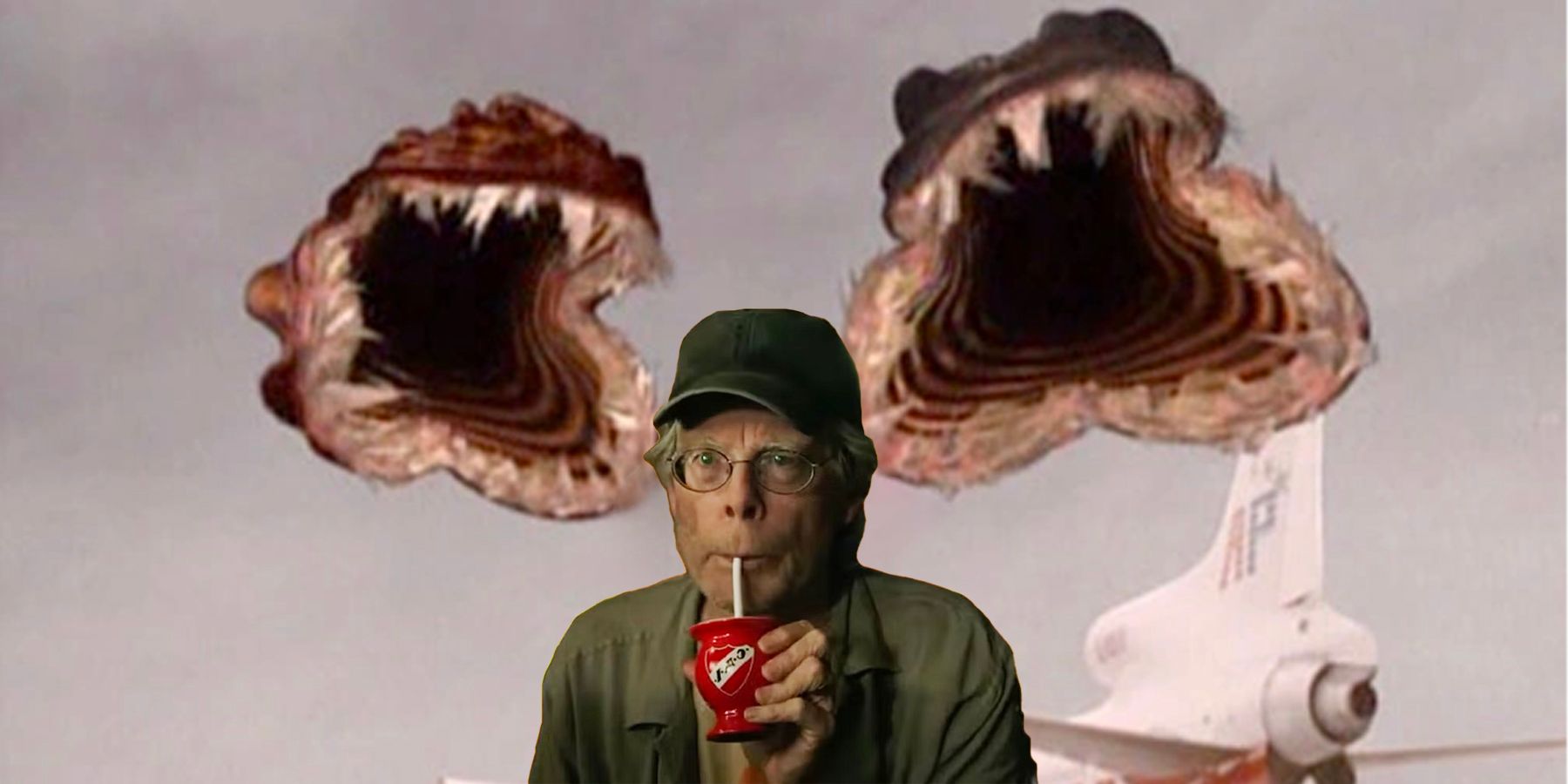
The Unadaptable Story of Stephen King's Insomnia

An in-depth look at why Stephen King's novel, Insomnia, is nearly impossible to adapt into a movie or TV show.
The Challenge of Adapting Stephen King's Insomnia
While Stephen King adaptations have experienced a resurgence in recent years, there's still one Stephen King novel that would be impossible to adapt–at least not without completely rewriting the story. In terms of modern-era authors, no one writer has been adapted nearly as frequently as Stephen King. Of course, part of this is helped by the fact that few modern authors are as prolific as King, but it's also simply because the man knows how to spin a good yarn.
The Dark Tower - Roland facing the Tower
In the past, adaptations of Stephen King's works haven't always been as solid as the ones audiences enjoy today. Thanks to more screenwriters and directors having grown up reading King's work (and thus understanding what makes his stories click with audiences), and the proliferation of streaming platforms, Hollywood has finally cracked the code for regularly making good Stephen King movies and TV shows. Even with creatives finally understanding how to translate King to the screen, a few of his books remain challenging to adapt. One book, in particular, can likely never be adapted.
amazon franchise dark tower series
Insomnia, published in 1994, is one of Stephen King's weirder novels, even by his standards. It follows the widower Ralph Roberts, who lives in Derry, Maine, a fictional location King readers know well. He develops a terrible case of insomnia and as his sleepless nights get worse, he starts to perceive auras and other strange things generally hidden from the human eye. It unfolds at a slow-burn pace. Ralph realizes he's not experiencing sleep-deprivation hallucinations, but another plane of reality, and that a few of his neighbors are starting to see them, too. In particular, Ralph's once mild-mannered neighbor, Ed, starts to behave in a crazed and violent manner.
The first two acts are a fairly standard, if somewhat slow, King story. The third act, however, takes a hard turn and reveals that the events happening to Ralph have deep connections to the wider Stephen King universe. As it turns out, Ed is being influenced by the Crimson King, the main antagonist of the Dark Tower series and an interdimensional force of chaos and evil. His mission is to kill Patrick Danville, a young boy who is fated to help preserve the Dark Tower, the multiverse's representation of order, by helping the gunslinger Roland Deschain at a key time in his quest to find and preserve the tower. Patrick later appears as a young man in the Dark Tower books and aids Roland.
The Impossible Adaptation of Insomnia
While a genuinely shocking revelation, it's this very twist that makes Insomnia impossible to adapt. The third act becoming a Dark Tower side story is what makes the entire book; to that point, the story is meandering and it's not entirely clear where the story is going or why it needs to be told. The third act reveal changes everything; Insomnia's story is utterly pointless without it. The only reason the novel's reveal works, however, is because longtime Stephen King readers know the Dark Tower mythos and understand the importance of the tower and what it represents.
There's no way to properly incorporate the backstory of the Dark Tower and its mythology into a movie or in a way that viewers can understand. It would have to be a Dark Tower story first and an Insomnia story second, which is a complete inversion of Insomnia's structure. King has long been known for tying a number of his stories into the Dark Tower series, but few are as reliant upon the entire mythology as Insomnia is – the story falls apart without it. It's the novel equivalent of a side-quest in a video game: pointless without first knowing the world. It's impossible to adapt Insomnia without the Dark Tower ending, and there's no way to do that without first explaining the entire mythology of the Dark Tower in the first place.
The Lesson from The Lawnmower Man
If Insomnia were to be adapted, it would have to be so different from the original novel that it might as well not even be an adaptation at all. Previous Stephen King adaptations that have butchered the original have shown it's not a good idea, with 1992's The Lawnmower Man being the most infamous of all. The movie can only charitably be called an adaptation of Stephen King's 1975 short story of the same name. In reality, the script came from a merging of King's short story with an original script titled 'CyberGod,' and the core concepts of Stephen King's story were changed or abandoned completely.
The Lawnmower Man
The result was a mangled mess of a movie. It was so different, in fact, that Stephen King hated the adaptation and sued the production to have his name removed from the movie. Originally, it had been titled Stephen King's The Lawnmower Man, but King hated the final version that was so far removed from his original short. His lawsuit, which he won, demanded his name be removed entirely from the project as it 'bore no meaningful resemblance' to his original story. It's a warning to anyone who might adapt Stephen King, including Insomnia, in the future: if his name is going to be associated with it, it better be faithful to at least the spirit of the original story.
















